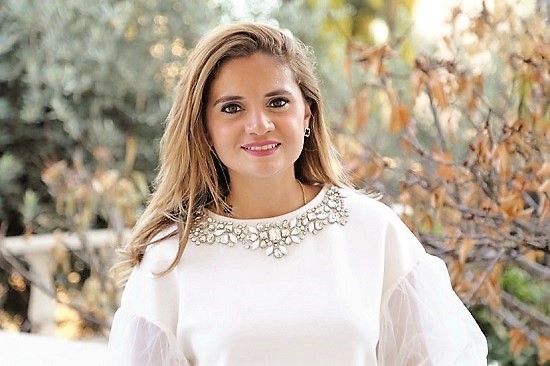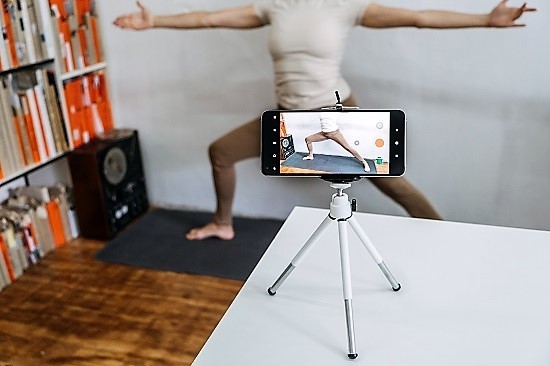A quick scroll through
social media feeds, and one can
notice the advent of Jordanian life coaches who are amassing hundreds of
thousands of followers.
اضافة اعلان
 An undated photo of Manar Al-Dina (Photo: Handout from Manar Al-Dina).
An undated photo of Manar Al-Dina (Photo: Handout from Manar Al-Dina).
With the
pandemic making many people worldwide question
their life choices, some Jordanians are self-examining by following these life
coaches, engaging with them on social media, and booking self-help sessions
with them.
The phenomenon of the rise of life coaches is not only
Jordan-centric.
In a Boston Globe article titled “Did you become a life
coach during the pandemic? Join the club,” the author pointed out: “Wherever
you look, there’s a new life coach. In your
Facebook feed talking about her
‘pandemic pivot’. In your inbox soliciting business. On the phone, chatting
about his new endeavor.”
The Globe also quoted
Robyn Parets, founder of
Pretzel Kids,
a nationwide web marketplace for kids’ yoga classes, as saying: “Life coaches
are the new yoga teachers.”
So what exactly is a life coach?
Renowned American coach, author, and speaker
Tony Robbins
defines a life coach as “someone who is professionally trained to help you
maximize your full potential and reach your desired results”.
Jordanian life coaches offer advice, and wellbeing and
mental health content through various ways on social media, either through
posts, Instagram “stories” or “reels”, and several of them charge for
one-to-one coaching sessions and run online courses and webinars.
 (Photo: Shutterstock)
(Photo: Shutterstock)
Issa Assa, who has over 267,000 followers on Instagram, is
one of them. According to his bio, his “passion is to help people live a
beautiful life”; he links to a free webinar titled “control your feelings”.
Manar Al-Dina, another Jordanian life coach on Instagram,
has 15,7000 followers and describes herself, in her bio, as a “mindset coach”.
Dina told
Jordan News how she got into life coaching: “I
read a book called ‘Feel the Fear and Do It Anyway’ by Susan Jeffers, and it
was the turning point in both my life and career. The book was so eye-opening
and so empowering to the point where I felt it became my calling. From there, I
pursued my life coaching certification, and then one thing led to another. This
was 12 years ago.”
Jordanians’ interest in self-help
Dina said that Jordanians have considerable interest in
self-help these days, “particularly post-
COVID. There is more awareness toward
self-development”.
Dina added that Jordanians are primarily interested in
self-confidence, relationships, career planning, and goal setting.
Rania Khoury, a full-time life coach with a presence on
Instagram agreed that there is an increase in self-development among
Jordanians.
 (Photo: Shutterstock)
(Photo: Shutterstock)
“I believe that the
Jordanian market has always had an
appetite for personal development, and it has increased in the last five years,
specifically after the pandemic, with people, and even organizations, becoming
aware of the importance of wellbeing and wellness.”
Khoury pointed out that Jordanians are mostly interested in
work-life balance topics, relationships, and life purpose.
Maha Habash, who told
Jordan News that she decided to become
a coach after she had many difficulties in life and was often anxious and
short-tempered, agreed that “self-awareness is increasing a lot in Jordan”.
Habash, who has 16,600 followers, said that Jordanians are
primarily interested in self-love, self-appreciation, and self-esteem.
Monetization
When it comes to monetizing, life coaches make revenues from
coaching services and online courses.
Ehab Hamarneh, who has 248,000 followers on Instagram and
describes himself as a “consciousness teacher and alchemist”, runs an online
academy, which has courses with topics ranging from “Inner peace, to “Rapid
manifestation” and “Enlightened self-love”.
“Coaching is my revenue-generating stream,” said Dina, who
provides training services to Roya TV.
 (Photo: Shutterstock)
(Photo: Shutterstock)
“There is a lot of content I create aimed at generating
awareness and building the leadership mindset, and when it comes to having 1:1
clients, those are paid sessions persons have to invest in to be able to take
their coaching journey seriously and apply the skills and learnings to see an
upgraded version of themselves.”
Dina said that clients “would not be as committed and
disciplined if they were receiving the coaching for free, and that is a proven
fact by the world’s top-performing coaches”.
Habash is still working on her monetization plans.
Currently, she makes no money from the coaching content she is creating.
“I would love to make money doing something I love.
Hopefully, it will happen as I grow.”
Dealing with negative feedback
Receiving negative feedback or even hateful messages is
something most influencers deal with. Dina said that she gets “a lot of them”.
“Sometimes I highlight them to draw attention to their
negative impact, at other times I try and speak to the individual to get to a
win-win mindset, and at other times I just ignore them.”
Meanwhile, Habash’s way of dealing with hate messages is to
“ignore and block”.
Plans
Asked about their plans, Dina said she aims to grow her life
coaching company by “focusing on empowering, inspiring, and educating more
people on the importance of personal development and how we can all become
positive catalysts for change in our communities”.
Khoury, who became a full-time coach in August 2021, aspires
to increase awareness about coaching and introduce it to the corporate world.
“I would like to introduce laughter, wellness into
corporates for a better employee wellbeing that will help manage stress,
increase creativity and enhance teamwork that will ultimately positively
improve the corporate culture.”
Read more Education



